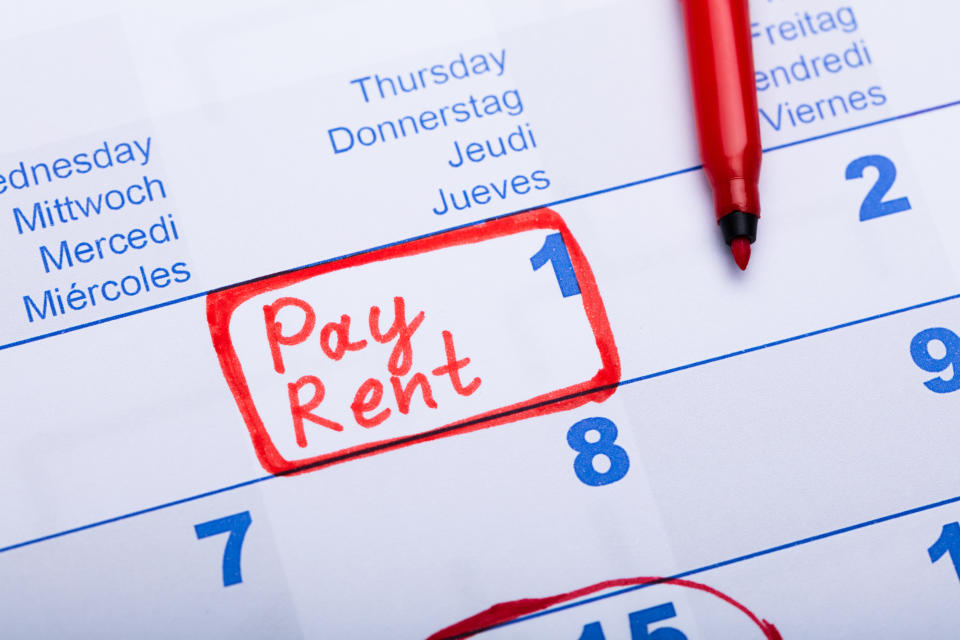Coronavirus fallout: One-third of Americans missed rent payments in April
As the novel coronavirus slows the U.S. economy, many renters — now unemployed — wondered how they would pay April rent. New data shows that one-third of Americans did not pay April rent before the due date.
As the novel coronavirus pandemic causes mass layoffs and financial disruption, 31% of U.S. renters did not pay April rent on time, up from 19% a month earlier and 18% in April 2019, according to a new report by the National Multifamily Housing Council (NMHC) based on 13.4 million rentals. Among U.S. renters, only 69% paid April rent on time.
“I started worrying when restaurants and public spaces started shutting down. I know it was necessary, but, man, it’s painful… When our tenants started getting laid off, I knew we had a huge problem,” said Granger MacDonald, a Kerrville, Texas landlord with over 4,500 units.
Renters are particularly exposed to financial risk during the pandemic. Renters tend to have lower income and less stable jobs than homeowners, contributing to some 35% who have lost income due to COVID-19, according to a March 31 survey of 500 renters by St. Louis-based listing website Clever. Forty-five percent of renters do not have enough savings to cover rent payment for a single month.

Landlords struggling to make it work
Most landlords are doing everything they can to keep tenants in their apartments, offering flexible payment plans and waiving late fees.
About one in 10 renters have secured rent forgiveness or reduction plans in response to COVID-19-related job loss, said the study by Clever, which found that 23% of renters surveyed did not pay April rent on time.
When Avail, a tenant management platform based in Chicago, asked what renters would do if they could not pay rent, 35% of renters said they would borrow the money, 6% said they would use a credit card, and 6% said they would take out a loan, according to a sample of 20,000 rental units nationwide.
But some 32% said if they couldn’t afford rent, they would simply stop making payments, according to Avail in a separate survey of 7,379 renters. Tenants who have not communicated with their landlords will be the most at risk, experts say.
“Landlords need to know that there’s a problem. Tenants need to contact their landlord to talk about their issues,” said David Howard, executive director of the National Rental Home Council, a Washington, D.C.-based advocacy group.
According to Avail, 35% of renters who were laid off proactively told their landlord.
As of April 3, MacDonald in Texas had 120 flexible payment agreements worked out with tenants. Still, about 30% of MacDonald’s tenants are past due and had not asked for a flexible payment agreement or communicated with MacDonald.
MacDonald said he did not know how he would pay his bills, which include mortgage, property taxes, insurance, employee salaries, management fees, utilities, maintenance items and other expenses like pest control.
“We’re all a little bit tattered right now,” said MacDonald, whose tenants mainly work in the hard-hit service industry. His staff has worked “untold hours” to help make this situation work for his tenants, he said. “We got on a video conference call, and I could just see the worry lines on their faces. It’s usually a pretty jovial group, and I didn’t see a smile in the crowd,” he said.
Only 4% of landlords have rent default insurance, and 58% do not have credit options to float expenses in an emergency, according to Avail. In fact, most landlords do not have enough cash to fund flexible payment plans for more than a month, say experts.
“If tenants just stop paying their rents, can landlords absorb that? Most work on thin margins, and there is not a lot of room to backstop. They may have capacity to get through April, but past April, that ability is probably very limited,” said Howard.
CARES is a half-baked solution
Landlords have called on Congress to expand the U.S. relief package for pandemic-related economic distress via the Coronavirus Aid, Relief, and Economic Security (CARES) Act. So far, relief measures on a national and local level have focused on rent relief for tenants, landlords say.
“We are happy to be part of the solution, but we can’t be all of the solution. The way the CARES Act is written, it’s very unbalanced,” said Andrew Chaban, CEO of Princeton Properties, a Lowell, Mass.-based property management company with 7,000 apartments.
The NMHC sent a letter to Congress on April 7, asking the government to delay all standard mortgage loan payments. Currently, the mortgage forbearance program allows pauses only on federally-backed mortgages.
“As more residents face job loss or furloughs and are unable to fulfill rent obligations, many owners/operators fear they, too, will not be able to satisfy their own financial obligations required to operate their properties,” said the NMHC in a statement.
The letter also requested a variety of financial assistance programs and further clarity on eviction moratoriums.
“If the landlord has to put off mortgage payments, they might never get the money from their renters, but the mortgage payment never goes away,” said Chaban. “That puts the landlord in a quandary. We want to do the right thing as an industry, but putting that anvil on our shoulders, it’s just shifting the burden from society onto landlords.”
Sarah Paynter is a reporter at Yahoo Finance. Follow her on Twitter @sarahapaynter
Read the latest financial and business news from Yahoo Finance
Follow Yahoo Finance on Twitter, Facebook, Instagram, Flipboard, SmartNews, LinkedIn, YouTube, and reddit.
More from Sarah:
Fourth coronavirus stimulus package needs these 3 things: expert
Coronavirus pandemic isn’t preventing renters from moving: survey
Closing on a home purchase virtually is more common amid the coronavirus outbreak



